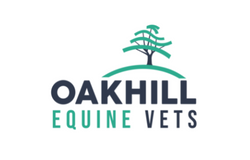Articles
Stay informed with our topical articles, all written by our equine vets.Postpartum checks
The equine breeding season is now in full swing which means that our vets have been busy scanning mares as well attending mares and foals for routine post-partum checks as well as unfortunately, in some cases, illness. Many of you may wonder, if the birthing process proceeds uneventfully, why the need to check mare and […]
Read MoreWhat Are Nerve Blocks & Why Are They Useful?
A nerve block is the deposition of local anaesthetic into the area immediately surrounding a nerve body or ending. This stops the nerve from transmitting signals relating to pain back to the brain, hence pain is prevented or “blocked”. Practically, the term nerve blocking is often used to describe the placement of nerve blocks in […]
Read MoreCovid-19 Equine Latest
During these unprecedented times, we are closely following the guidance issued by our governing body, the Royal College of Veterinary Surgeons (RCVS). We are entirely committed to protecting the health of the public, our clients and our staff, whilst maintaining the highest possible standard of care for your horses. As of Tuesday, April 14th the RCVS […]
Read MoreOur equine team and services
Oakhill Equine Vets is a 12-vet dedicated, equine-only team. We are extremely lucky at Oakhill to have a highly qualified equine veterinary team with 111 years experience between them! Guy and Rosie are both European and RCVS recognised specialists in Equine surgery and lameness. We also have two vets with RCVS advanced practitioner status, Jess […]
Read MoreLaminitis
10 take home points about Laminitis Laminitis is an incredibly painful and debilitating condition which, in severe cases, can result in the loss of the affected patient. Laminitis is defined as inflammation of the laminae which in turn results in pedal bone instability meaning that the pedal bone may sink (founder) or rotate. The primary […]
Read MoreCovid 19 Update
Following the Prime Minister’s announcements and advice from our professional bodies, we are moving to a service where we no longer provide any ROUTINE veterinary care. This is to ensure the health and safety of our staff and our clients, and to strictly adhere to social distancing policies as set out by the government. We […]
Read More